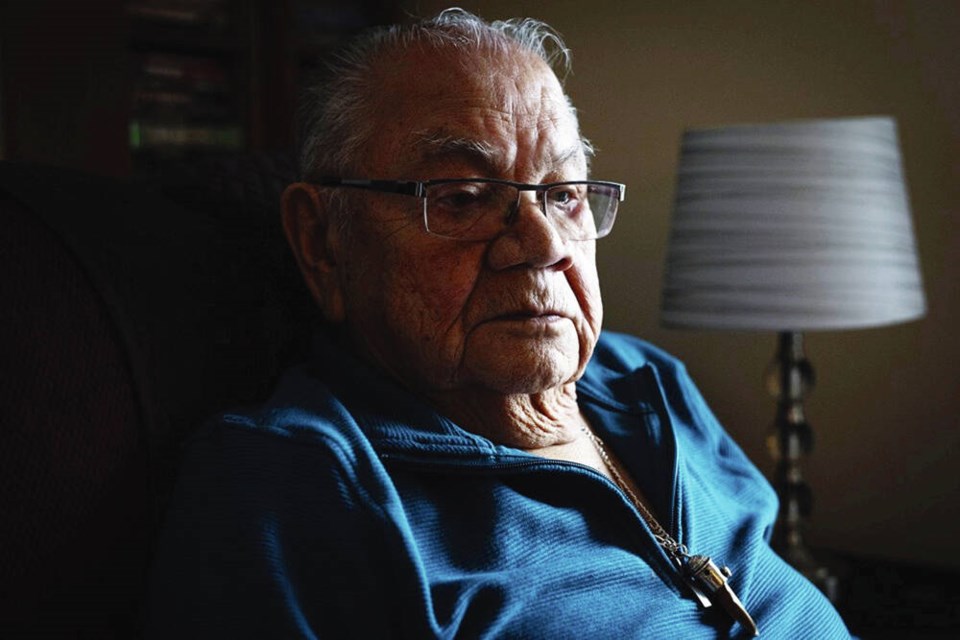Barney Williams was only six years old when he was taken from his home in Opitsaht, on Meares Island, and transported to the Christie Residential School.
To this day, he is triggered by the years of abuse he endured while attending the school on Vancouver Island.
Williams never spoke of his abuse, hiding it from everyone he knew — including his wife — until he bared his soul to a set of strangers during a Truth and Reconciliation Commission hearing.
An apology “should have been made a long time ago,” he said. “It’s about time.”
Now, with Pope Francis set to visit Canada and deliver a formal apology on behalf of the Roman Catholic Church, the 82-year-old will get one.
During his trip, which starts today and runs through Friday, the Pope will tour three regions of Canada in what is being called a historic journey of “healing and reconciliation.”
In April, the Pope apologized to Indigenous representatives from across Canada for “the deplorable behaviour” of members of the Catholic Church who caused harm to Indigenous communities through the residential school system.
“I feel shame,” he said April 1 in a speech at the Vatican. “Shame and sorrow” for the abuse and lack of respect shown for Indigenous identity, culture and spiritual values.
The last of Canada’s 139 residential schools didn’t close until the late 1990s. During the 19th and 20th centuries, it’s estimated that over 150,000 Indigenous children were forced into the system, which tried to strip them of their language, culture and heritage. Many never returned to their families.
Pope Francis will be visiting Edmonton, Iqaluit and Quebec City.
Edmonton is home to the second-largest number of Indigenous peoples living in urban Canadian centres, while Iqaluit is home to the highest population of Inuit, and Quebec City provides an eastern hub.
The federal government has committed $30.2 million to Indigenous communities and organizations for community-led activities relating to the papal visit. These include healing activities, events, ceremonies and travel for survivors.
Crown-Indigenous Relations and Northern Affairs Canada said an additional $3 million is being made available to support co-ordination in the three host regions by Indigenous partners. An added $2 million is being provided to support translation of the apology into Indigenous languages, as well as interpretation of the events.
The British Columbia Assembly of First Nations is being allocated tickets for each site during the papal visit.
BCAFN Regional Chief Terry Teegee said Indigenous communities are calling for an “unqualified apology.”
Overwhelmingly, Teegee said, survivors are hoping the Pope apologizes on behalf of the Catholic Church, rather than on behalf of certain members of the church.
There were 18 Indian Residential Schools that operated in B.C., along with more than 100 day schools.
While an apology won’t “offer full closure,” Teegee said he hopes it will help people in their healing journeys.
“There’s more issues to be dealt with,” he said, including addiction issues that were “born” from the residential school system.
Williams echoed the sentiment. “You just have to look to the streets to see the impacts,” he said. “We’re still suffering.
“There are First Nations on the streets with addiction problems from having parents who went to residential [school] — they’re products of that as well.”
Teegee plans to be in Edmonton to help BCAFN offer support to survivors.
Traditional healers, elders and other mental-wellness supports will be available to residential school survivors, their families and communities throughout the papal visit, according to Crown Indigenous Relations and Northern Affairs Canada.
Williams said he’s not able to travel to Edmonton because of his health and wonders how many others are in a similar position.
“I would like to [attend],” he said. “But it’s too much for many of us that are not well anymore.”
The Tla-o-qui-aht elder said he hopes for “sincerity” from the Pope’s apology, as well as a plan for how the Catholic Church intends to repair the damage that’s been done.
“What are they going to do about the damage that’s been done over all the years that these places were operated by the Catholic Church?” Williams asked. “It’s not over by a long stretch.”



